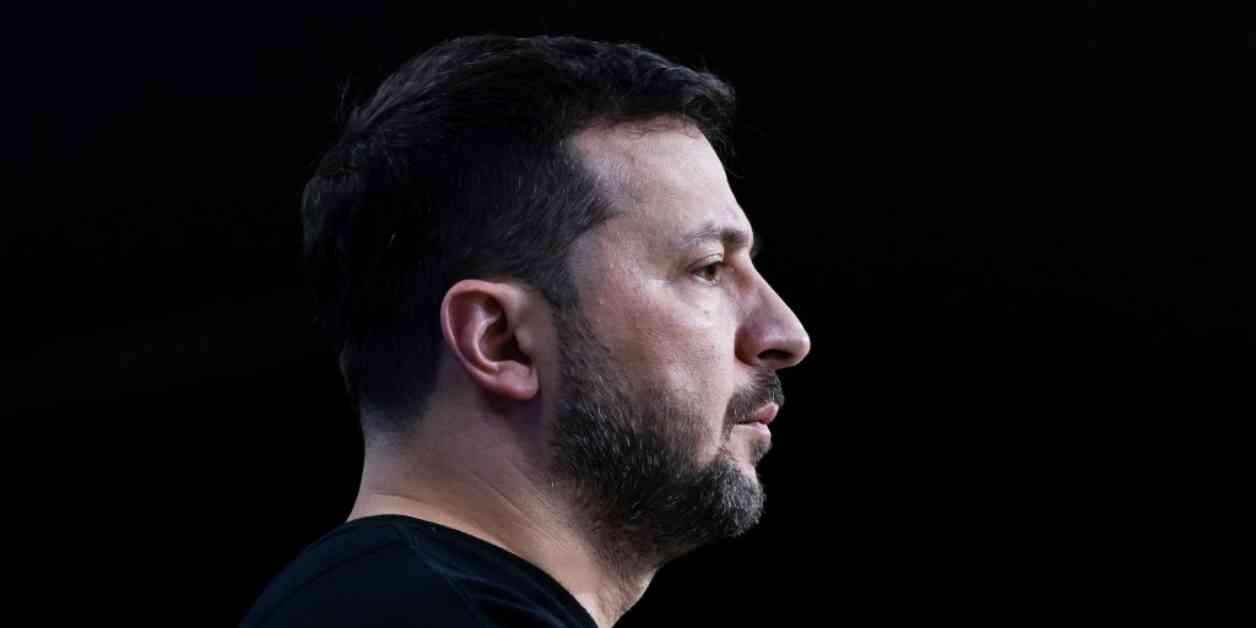Ukrainian President Volodymyr Zelenskyy made a bold statement during a press conference in Kyiv, expressing his willingness to step down from his position if it meant achieving peace in Ukraine or securing NATO membership. Zelenskyy’s offer, delivered in Ukrainian, highlighted his commitment to Ukraine’s security and stability in the face of ongoing challenges and tensions.
In response to a public dispute with President Donald Trump, who had insinuated that Zelenskyy was responsible for starting the war, the Ukrainian president stood his ground, accusing Trump of promoting Kremlin propaganda. The exchange between the two leaders escalated, with Trump referring to Zelenskyy as a “dictator” and a “modestly successful comedian.”
Despite the verbal sparring, Zelenskyy emphasized the importance of partnership with the United States, expressing his desire to have Trump’s support. He maintained a pragmatic stance in the face of criticism, focusing on the opinions of the Ukrainian people and his commitment to serving their interests.
Zelenskyy’s Bold Offer and Concession
Zelenskyy’s willingness to resign in exchange for peace or NATO membership marks a significant concession on his part, reflecting his prioritization of Ukraine’s well-being over personal power. By offering to step down if it would contribute to ending the conflict and enhancing Ukraine’s security, Zelenskyy demonstrated his commitment to the country’s future.
The Ukrainian president’s stance also underscores the complex political dynamics at play, with international relationships and geopolitical considerations shaping the discourse around the conflict. Zelenskyy’s offer opens up possibilities for diplomatic negotiations and strategic maneuvering, potentially paving the way for constructive dialogue and conflict resolution.
The Challenge of Diplomacy and Leadership
As Zelenskyy navigates the challenges of diplomacy and leadership in a volatile geopolitical landscape, his interactions with President Trump and other international actors highlight the complexities of international relations. The tension between the two leaders underscores the intricacies of power dynamics and the importance of effective communication in diplomatic exchanges.
Zelenskyy’s refusal to accept a peace deal without Ukraine’s direct involvement in negotiations reflects his commitment to the sovereignty and agency of his country. By asserting Ukraine’s right to be a key player in discussions about its future, Zelenskyy reaffirms his dedication to representing the interests of the Ukrainian people and safeguarding their security and well-being.
In conclusion, Zelenskyy’s offer to step down for peace or NATO membership, his response to President Trump’s remarks, and his commitment to Ukraine’s participation in peace negotiations underscore the complexities of leadership and diplomacy in the context of ongoing conflict. The evolving dynamics between international actors and the shifting geopolitical landscape highlight the challenges and opportunities facing Ukraine and its leadership in the pursuit of peace and security.


